
A father who underwent gruelling chemotherapy for leukaemia which left him with “no strength whatsoever” and unable to walk up his local path without having to sleep for hours afterwards has now decided to take on the London Marathon.
Stephen Hughes, 47, from Penrhyn Bay, Wales, who works with the police, was diagnosed with acute promyelocytic leukaemia (APL) – a rare type of blood cancer – on April 12 2017 after experiencing back pain “deep inside (his) bones”.
He said he remembers the day of his diagnosis “like it happened yesterday” as it turned his world “upside down”, but his first thought was his two children – Elan, 17, and Harri, 14.
“I was so convinced that I was just going to pop there and get this test to confirm, ‘yes, everything’s fine’, that I didn’t say goodbye properly to the children,” Stephen told PA Real Life.
“I thought that I was never going to see them again.”
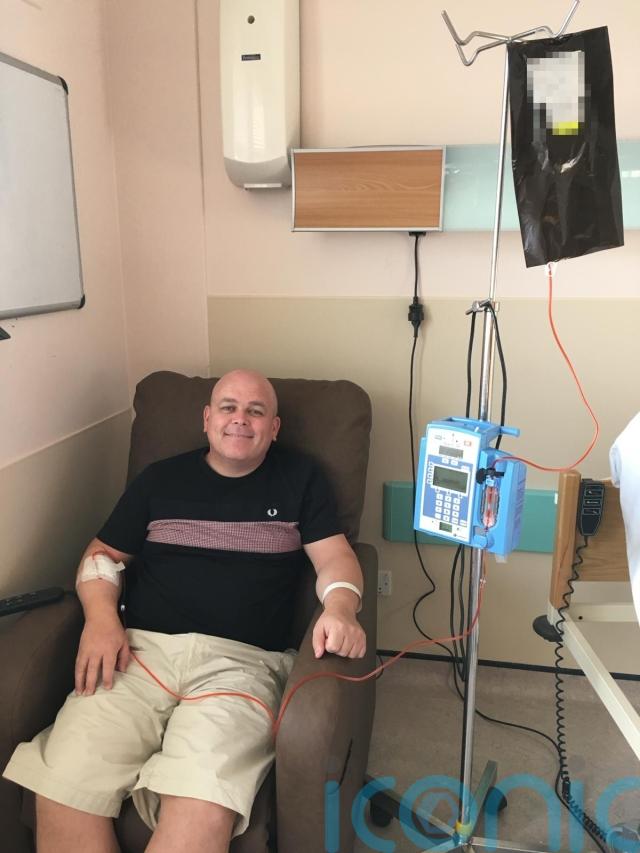
Stephen later found out that his doctor initially did not think he would “make it through the weekend” – but during treatment, he made promises to himself that he would aim to improve his fitness and spend more time with his children.
He remained in hospital for six weeks, undergoing “countless” rounds of chemotherapy and multiple blood transfusions, even taking up to 25 tablets a day, before being told he was in remission in July 2017 and continuing treatment at home.
His treatments were so intensive that he could barely walk five minutes up his local path without feeling utterly exhausted, but with his desire to regain a sense of “normality” again, he gradually started building up his strength.
Now, despite Stephen still having regular check-ups due to the risk of relapse, he said life has returned to normal again – and in a “moment of madness”, he signed up to run the London Marathon for the charity Leukaemia UK.
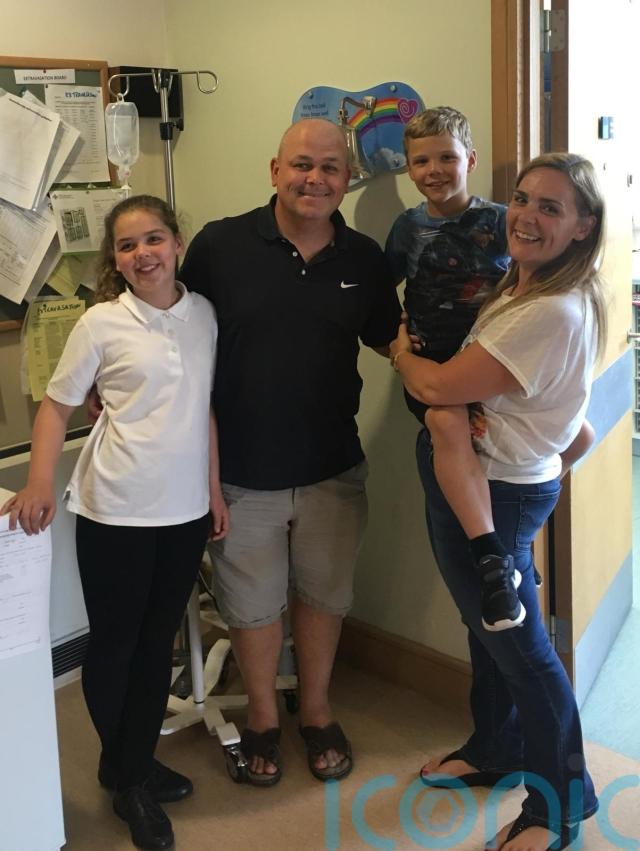
Although he said he is a “million miles away” from classing himself as a runner, he is “giving it a good shot” and feels fitter and stronger than ever.
“When I look back, there’s a path that runs next to our house, and I went for a walk to try and watch my son play football – it was literally a five-minute walk – but by the time I got there, I couldn’t stay, I was just so tired,” he said.
“I had to turn around and come back again and I slept for hours, absolutely hours.
“So to go from that experience to now even contemplating running a marathon, I’m quite proud of myself.”
Speaking about the fundraiser, he added: “If it helps even one person who finds themselves in the same situation, if it helps them with the treatment and the research that Leukaemia UK carry out, then it would all be worth it.”
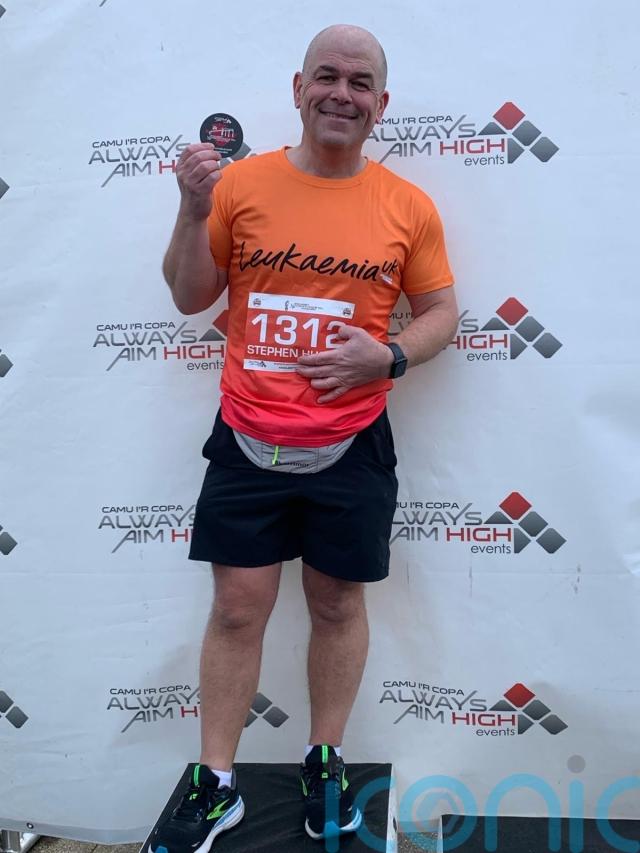
Stephen’s cancer journey began in November 2016 when he started experiencing back pain.
This was “nothing of great concern” initially, as he had experienced intermittent back pain in the years prior, but the discomfort continued and increased in severity over the following months.
On Mother’s Day in March 2017, during an outing with his wife Catherine, 50, and two children, Stephen said the pain was “horrendous” and he could “barely walk”, prompting a visit to his GP.
The doctor advised him to go to the A&E department at Ysbyty Gwynedd hospital in Bangor, North Wales, where he had blood and urine tests, and these investigations continued for several weeks.
On April 10, Stephen’s GP called to say he had noticed his blood levels had been dropping with every test, and he was subsequently referred to the North Wales Cancer Unit at Glan Clwyd hospital in Denbighshire.
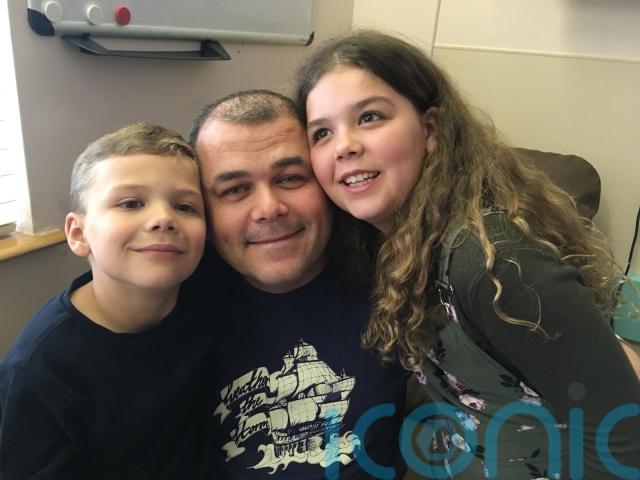
It was here, on April 12, that his APL diagnosis was confirmed.
“Strangely, that morning, I’d woken up with no back pain for the first time in weeks, which was bizarre, but I think I’d convinced myself that the blood was just a side effect of the strong painkillers I’d been taking,” Stephen said.
“So when we got to the cancer unit, it suddenly dawned on me that it was something possibly more serious.”
That same day, on April 12, Stephen had a bone marrow biopsy taken from the base of his spine, which was “horrific”, and he then received the official APL diagnosis hours later.
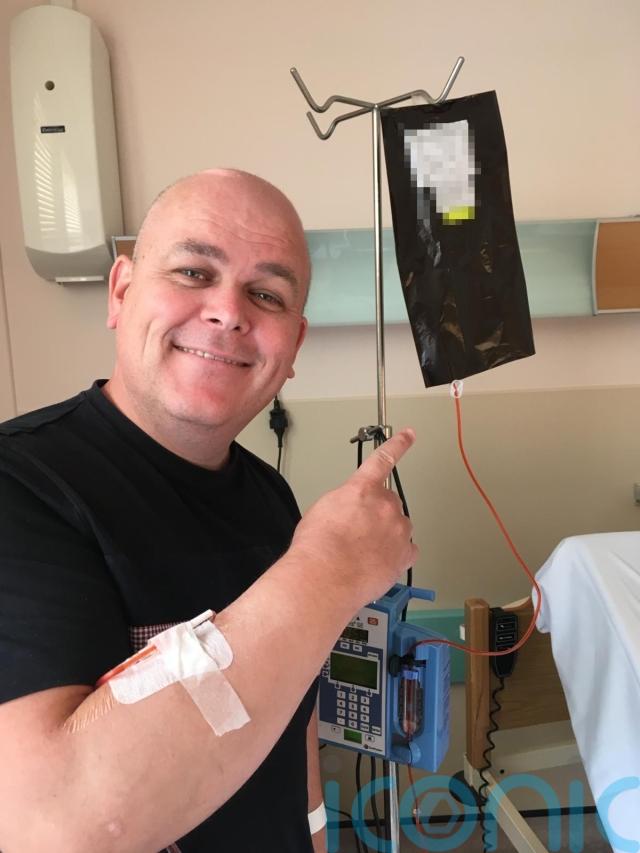
“Your whole world is literally turned upside down in a matter of a few hours,” Stephen said.
“I was so convinced that there was actually nothing wrong with my blood… so to then be told, literally a few hours later, that actually, ‘no, you’ve got cancer, you’ve got this life-threatening illness’, was just unbelievable.
“Shock doesn’t cover it really, it was just horrific.”
Once Stephen had “overcome that initial shock”, he said his next reaction was: “How do I beat this thing then.”
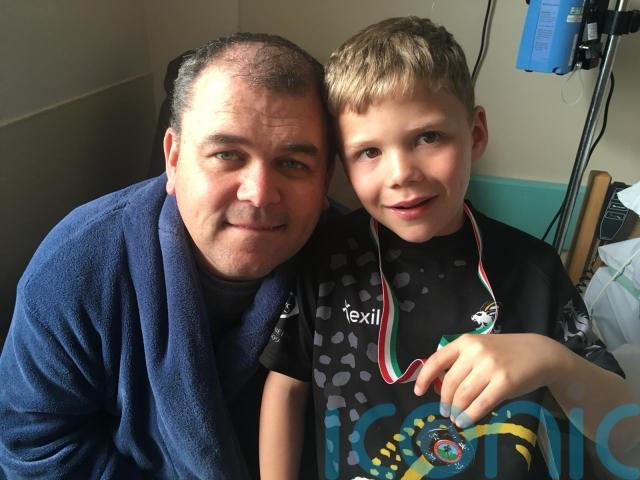
He started treatment immediately, which included several rounds of chemotherapy – causing hair loss, nausea, and extreme exhaustion – and took tablets, and he remained in hospital for six weeks.
He was told he was in remission in July 2017, and then continued treatment at home for two more months – but given his “immune system was shot to bits” and the “feeling of weakness was overwhelming”, he could barely walk.
He only truly started to process the impact of his diagnosis in September 2017 once his wife and children had returned to work and school, leaving him struggling with a “feeling of isolation” and frustration.
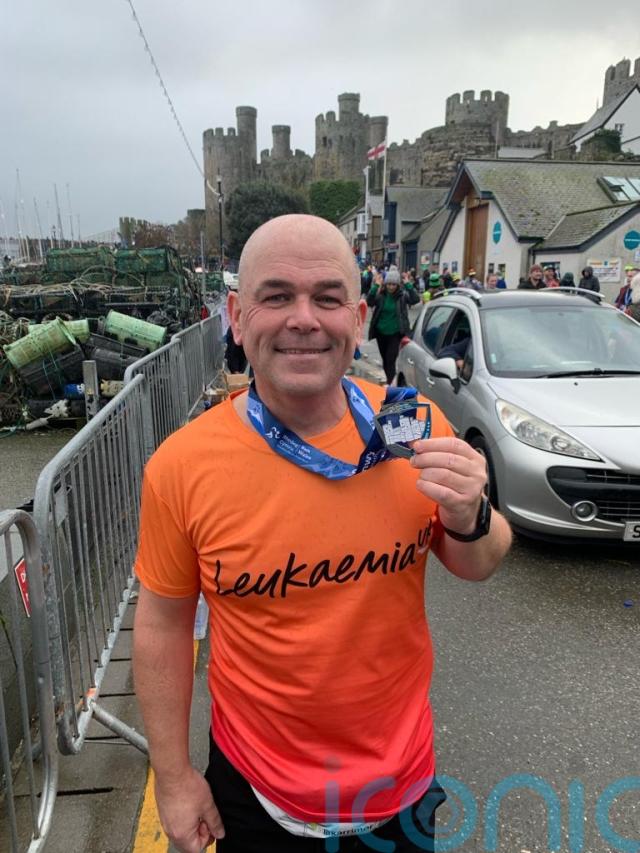
“Everything seems to be returning to normal, life is returning to normal, and I just felt a million miles from normal – that’s when it really hit me,” Stephen explained.
“When you’re in treatments, and you’re having this chemotherapy, I was making all these promises to myself – if I get through this, then I’m going to be fit, I’m going to be healthy, I’m going to spend more time with the kids.
“But I was getting frustrated with myself that, you’ve been told you’re in remission and the cancer is gone, but you’re not living up to the promises that you made to yourself because you just have no energy. I couldn’t do anything.”
However, step by step, and by going to his local gym, Stephen’s fitness and health slowly returned – and now, having never previously run farther than 5k, he has challenged himself to take on the 2024 TCS London Marathon this April.
He aims to raise £2,000 for the charity Leukaemia UK, and although he feels nervous and apprehensive, he is excited for the challenge and “determined” to cross the finish line, and hopes his story will raise awareness and inspire others.
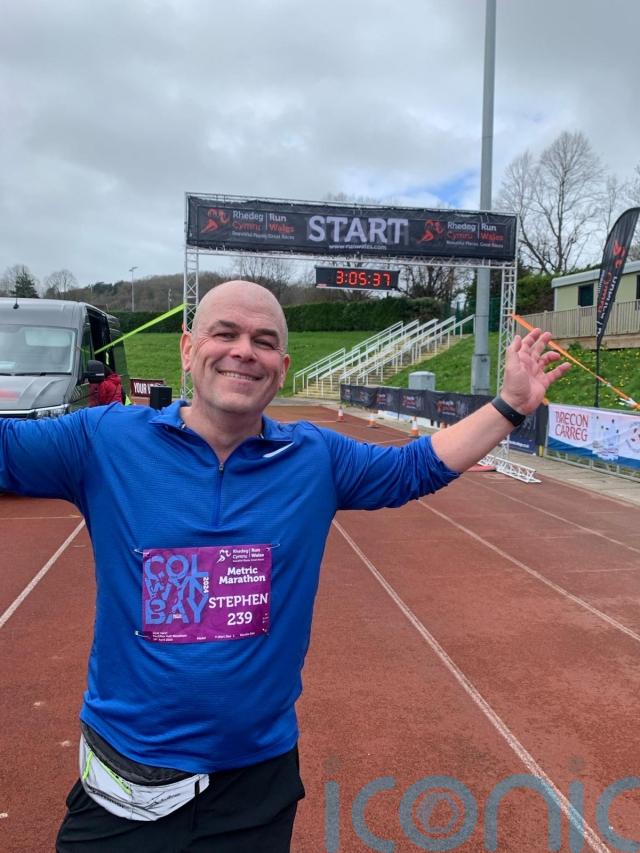
“When I look back now, the period of treatments itself was difficult – the feeling of absolutely no strength whatsoever, no stamina, going for a short walk would just wipe me out,” he said.
“But it was manageable because I had such good family and friends around to support me through that process.
“My wife was incredible… while I was lying in my hospital bed, hooked up to a chemotherapy machine, she was rushing around left, right and centre, making sure that life was carrying on as normal for the kids.
“At the end of the day, it puts everything in perspective that your health is the priority. If you’ve got your health, then everything else really is secondary to that.”
To donate or find out more, visit Stephen’s fundraiser here: justgiving.com/fundraising/stephen-hughes026
Subscribe or register today to discover more from DonegalLive.ie
Buy the e-paper of the Donegal Democrat, Donegal People's Press, Donegal Post and Inish Times here for instant access to Donegal's premier news titles.
Keep up with the latest news from Donegal with our daily newsletter featuring the most important stories of the day delivered to your inbox every evening at 5pm.